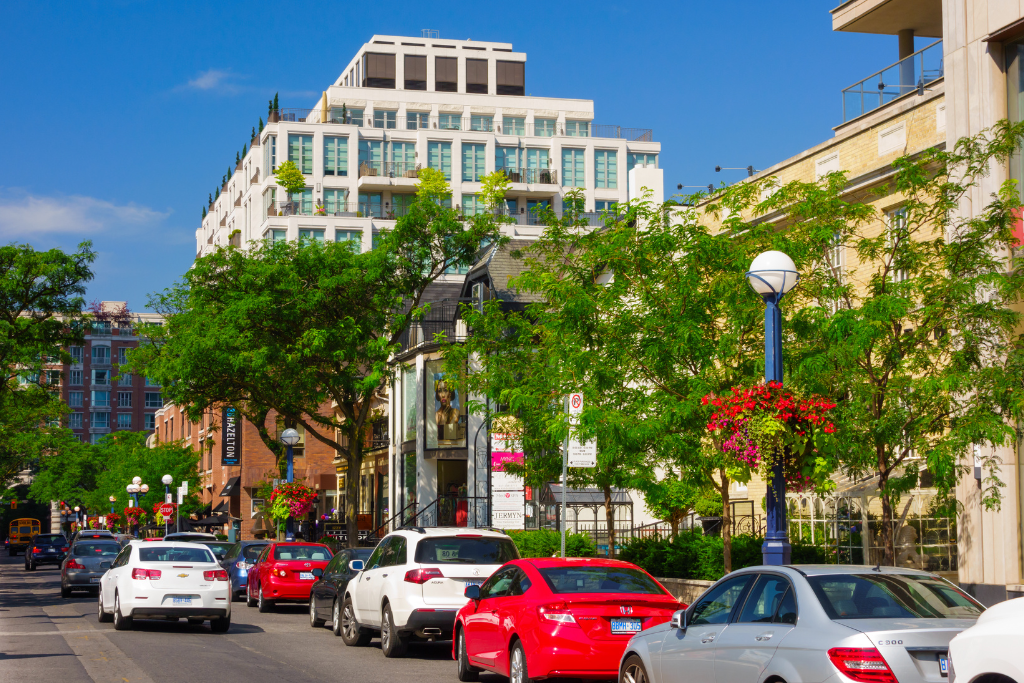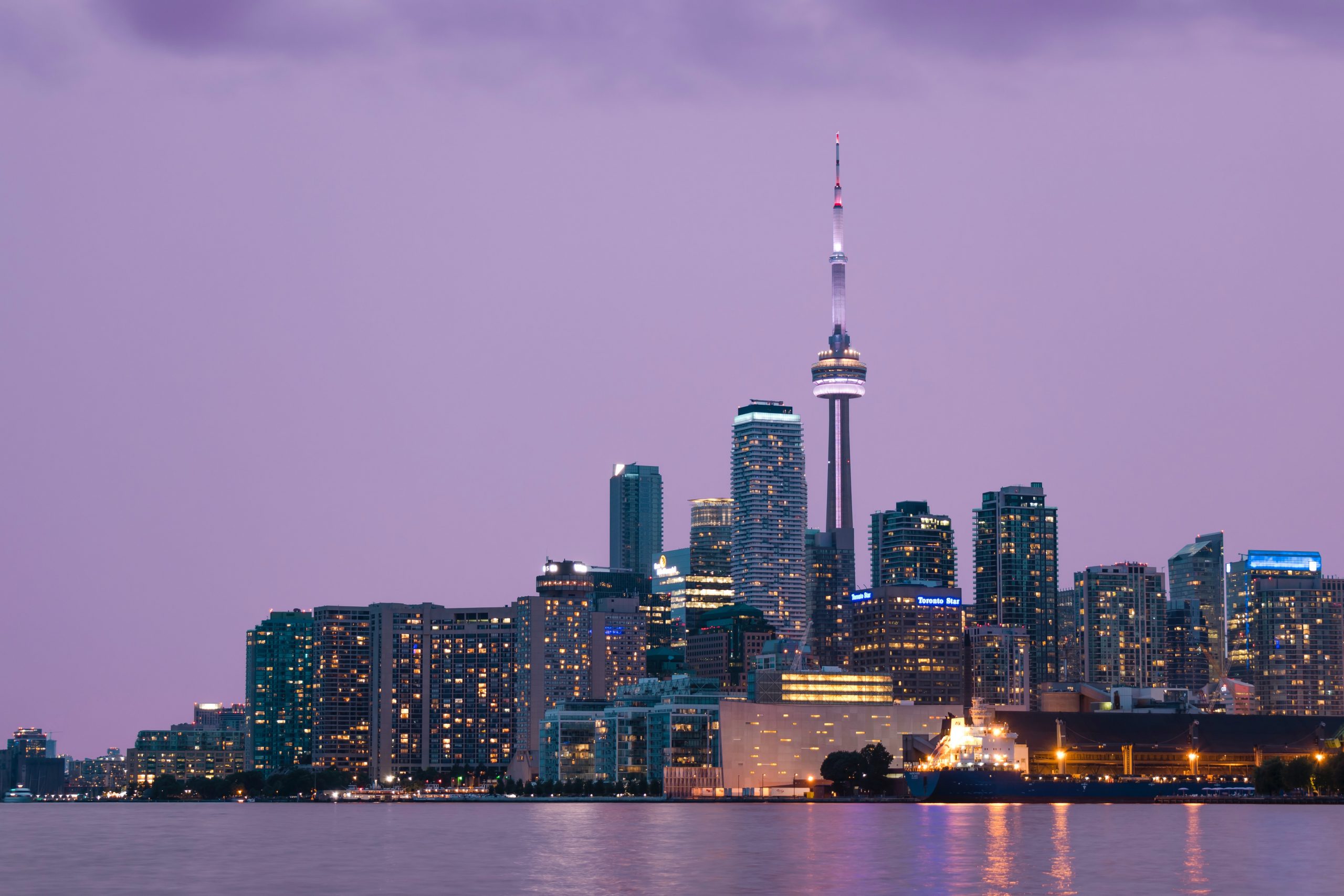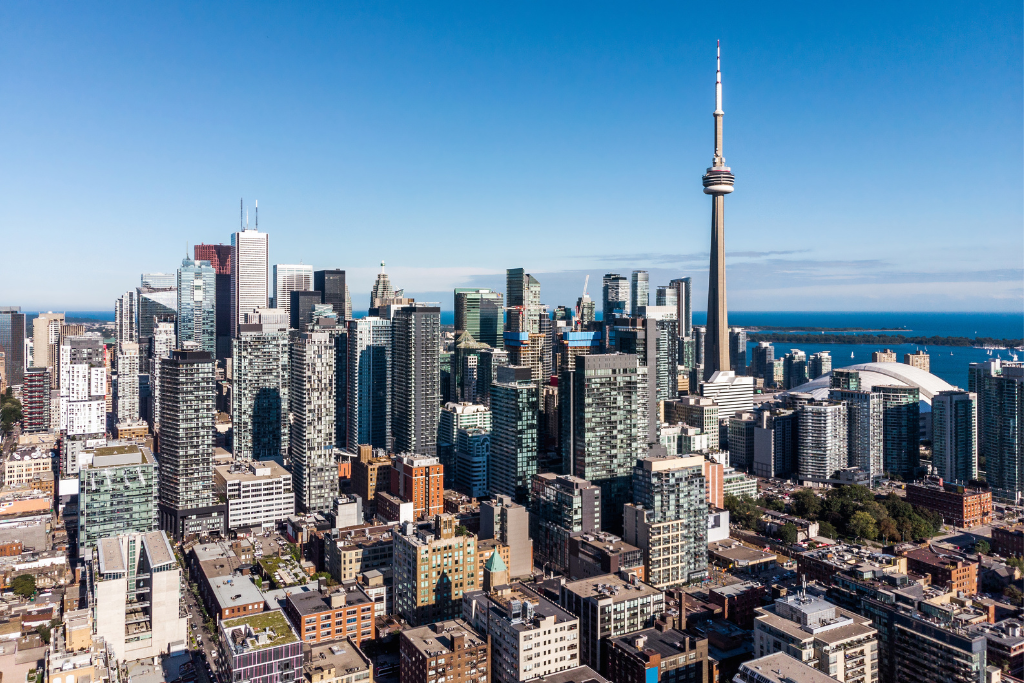- Content verified by a local expert

“Toronto is often regarded as one of the best cities to live in for several reasons. Despite its high cost of living, it offers a blend of many cultures, with diverse communities that bring in various foods, festivals, and traditions. Toronto also has fantastic educational opportunities with top universities and colleges, combined with a great job market. You’ll also find transportation and connectivity between the TTC, GO, and VIA Rail, connecting people to wherever they need to go. With top restaurants, fantastic arts and theatre productions, and unique experiences, there’s always something to do or something new to see.”
Housing costs in Toronto
Toronto has a very competitive housing market, and the average home prices are much higher than the national average, making it one of the most expensive cities in Canada to buy a home.
This is because many people want to live in Toronto due to its vibrant culture, strong economy, job prospects, exciting attractions, and beautiful waterfront locations along Lake Ontario.
Cost of rent in Toronto
|
Area/Neighborhood |
1-bed apartment |
3-bed apartment |
|
Toronto (Outside of Center) |
$2,129.56 |
$3,610.16 |
Cost of buying a property in Toronto
|
Area/Neighborhood |
Average home price |
|
Greater Toronto* |
$1,097,300 |
Utility costs in Toronto: Internet, electricity and water
Whether you own a house or rent in Toronto, you’ll need to budget for utility costs. Toronto’s diverse weather, with cold winters and hot summers, impacts electricity usage. In winter, the average consumption is approximately 1,000 kWh, while in summer, it drops to around 600 kWh.
The monthly average cost of a basic utility package, which includes electricity, heating, cooling, water, garbage, and Internet services in Toronto, is as follows below:
|
Utilities |
Cost |
|
Basic (Electricity, Heating, Cooling, Water, Garbage) for 915 sq ft Apartment |
$162.97 |
|
Internet (60 Mbps or More, Unlimited Data, Cable/ADSL) |
$70.42 |
|
Total |
$233.39 |
Numbeo (Aug 2024) & OEB (2023)
Grocery costs in Toronto
Grocery costs in Toronto are a higher than other cities in Canada. Additionally, basic items such as dairy, eggs, cereals, vegetables, meat, fish, coffee, and more are tax-exempt when purchased in grocery and convenience stores.
| Grocery items in Toronto | Cost (CAD) |
| Milk (regular, 1 liter) | $4.39 |
| Loaf of Fresh White Bread (500g) | $3.80 |
| Rice (white, 1kg) | $4.69 |
| Eggs (regular, 12) | $4.61 |
| Local Cheese (1kg) | $14.62 |
| Chicken Fillets (1kg) | $17.26 |
| Beef Round (1kg) | $18.75 |
| Apples (1kg) | $5.30 |
| Banana (1kg) | $2.04 |
| Oranges (1kg) | $4.89 |
| Tomato (1kg) | $5.21 |
| Potato (1kg) | $3.44 |
| Onion (1kg) | $3.84 |
| Lettuce (1 head) | $3.10 |
| Water (1.5 liter bottle) | $2.37 |
| Bottle of Wine (Mid-Range) | $19.00 |
The average monthly cost of groceries in Toronto is $821.17.
*The grocery list on Numbeo was summed (without beer and cigarettes) and then multiplied seven times to meet a 2000 calorie per day diet.
Public transit in Toronto
The Toronto Transit Commission (TTC) oversees Toronto’s public transportation, including subways, buses, and streetcars serving the city and nearby areas.
To travel, you have to purchase tokens or tickets at subway stations, Shoppers Drug Mart locations, or online at prestocard.ca. Bus and streetcar operators don’t sell fares, so don’t forget that you need to have the payment ready before boarding.
For the subway, there are three lines in operation. Trains run every 2 to 3 minutes during rush hours and every 4 to 5 minutes outside of rush hours:
- Line 1 (yellow line): Yonge-University to Vaughan Metropolitan Centre Station.
- Line 2 (green line): Bloor-Danforth to Kennedy Station.
- Line 4 (purple line): Sheppard to Don Mills Station.
|
Type of fare |
Rate |
|
Single ticket (PRESTO one-ride ticket) |
$3.35 |
|
Daily pass (PRESTO day pass ticket) |
$13.50 |
|
Fair pass Transit Discount |
$2.10 |
|
Monthly pass |
$156.00 |
Toronto Transit Commission (Aug 2024)
Entertainment costs in Toronto
Toronto offers its residents a wide variety of local attractions and cultural experiences, including popular places such as the CN Tower, the Royal Ontario Museum, Ripley’s Aquarium of Canada, the Hockey Hall of Fame, and numerous vibrant city festivals.
Here are some insights into the entertainment average costs in Toronto:
|
Entertainment in Toronto |
Cost |
|
Mid-range restaurant meal |
$60.00 |
|
Taxi 1h |
$35.00 |
|
1 cinema ticket |
$18.00 |
|
Total |
$113.00 |
Sales tax in Toronto
In Canada, there are three types of sales taxes: the federal GST (5%), the provincial sales taxes PST (varies depending on the province), and the HST, which is a combination of the two. In Ontario, the HST is used, which is equivalent to 13% and applies to purchases of goods and services.
While some items, like basic groceries and sometimes feminine hygiene products, are exempt from sales taxes, the rate for other products depends on the specific province.
Government of Canada (Aug 2024)
Healthcare costs in Toronto
When moving to Ontario, you should be aware of Ontario’s public health insurance, OHIP. This covers basic medical expenses through payroll taxes and federal support. However, for more comprehensive coverage, you have two options, you can choose to purchase private health insurance or use the one sponsored by your employer.
The cost and coverage of private health insurance depend on several factors, such as your age, gender, lifestyle, pre-existing conditions, specific coverages, and the chosen provider.
|
Type of healthcare |
Cost |
|
Employer-sponsored health insurance |
$63.00 |
|
Non-employer-sponsored health insurance |
$61.32-$196.20 |
|
Gym |
$70.05 |
Numbeo (Aug 2024), Hellosafe (2023) & Insurance Business (Apr 2023)
Conclusion
Moving to Toronto can also present challenges due to its relatively high cost of living. However, with a careful financial planning, thriving in this dynamic city is entirely possible.
If you need assistance with your move, consider researching and hiring the best movers in Toronto to make your transition smoother.
Check out this table for the average monthly expenses of living in Toronto this year.
|
Category |
Monthly cost |
|
1 bed apt rent outside city center |
$2,129.56 |
|
Groceries |
$821.17 |
|
Utilities Electricity, heating, cooling, water, garbage |
$162.97 |
|
Internet with 60 Mbps |
$70.42 |
|
Transit pass |
$156.00 |
|
Entertainment Meal, taxi, movie |
$113.00 |
|
Gym membership |
$70.05 |
|
Total |
$3,523.17 |




